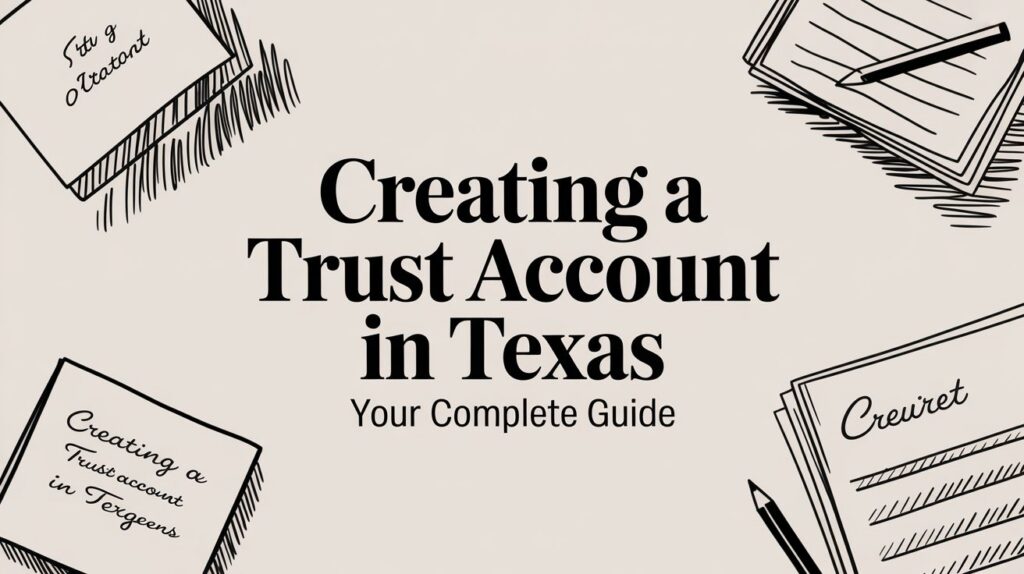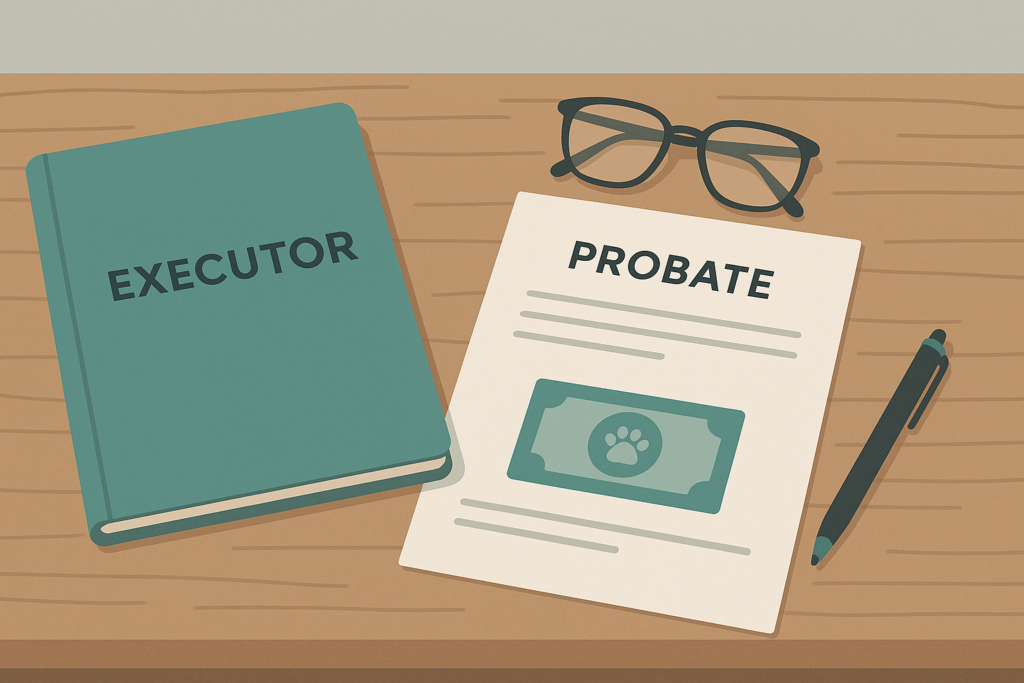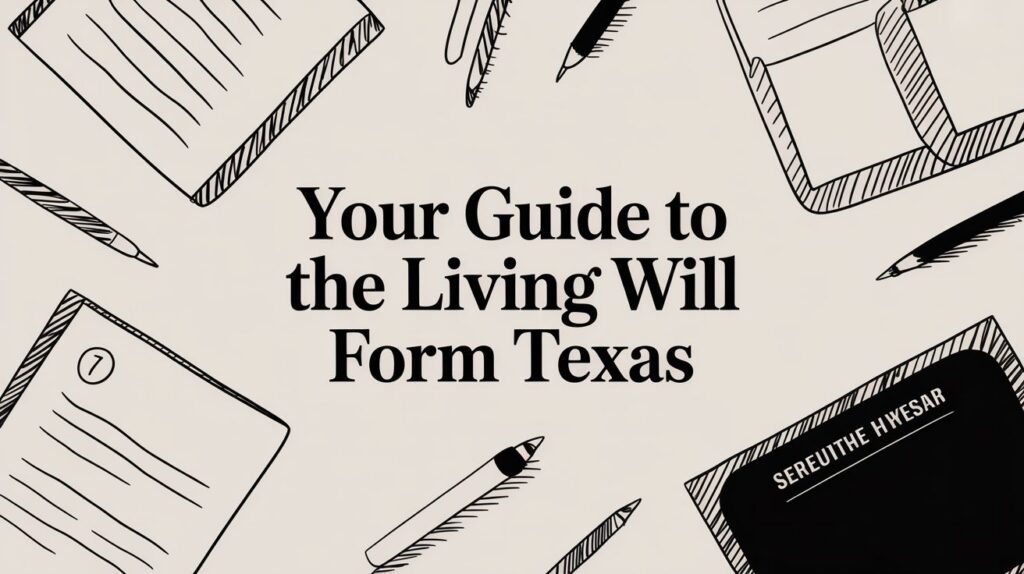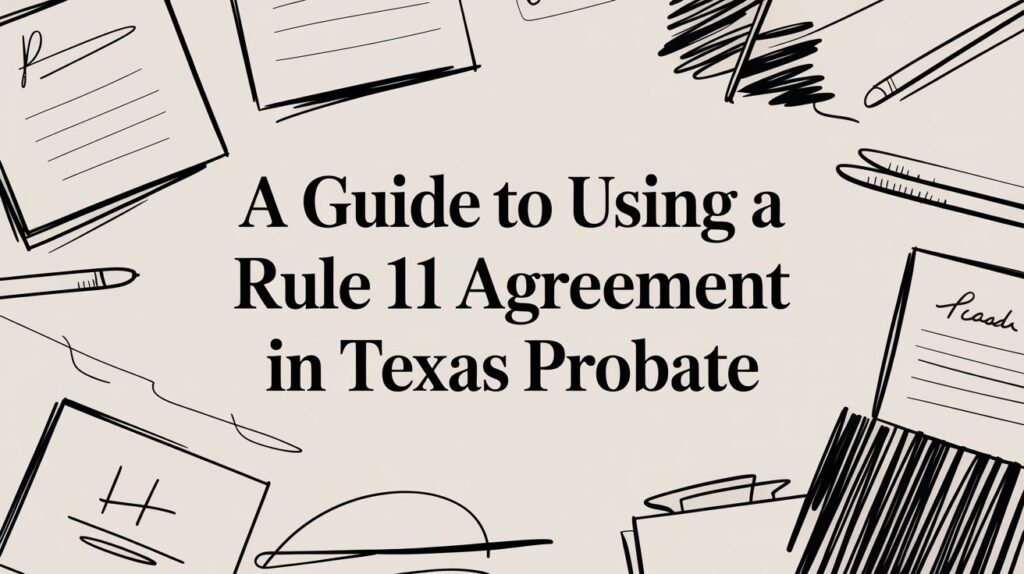When families start asking how to avoid probate in Texas after death, they’re usually looking for ways to spare their loved ones the headache of navigating the court system during an already stressful time. Probate in Texas, while more efficient than in some other states, can still be time-consuming, expensive, and public. The good news? You have plenty of legal tools available to bypass probate entirely—or at least minimize the assets that go through the court process.
In this comprehensive guide, we’ll break down exactly how to avoid probate in Texas after death. We’ll walk through the legal strategies Texans use to transfer property quickly and privately, share real-life examples of both successes and costly mistakes, and analyze how to use these tools based on your family’s unique situation. If you want to understand how to avoid probate in Texas after death, this is your resource.
Understanding Probate in Texas

Before we dive into how to avoid probate in Texas after death, let’s first understand what probate actually involves. Probate is the court-supervised process of validating a will, paying debts, and distributing a deceased person’s assets to heirs or beneficiaries.
In Texas, the probate process is generally more streamlined than in many other states thanks to independent administration options. But even so, probate:
- Can take months or even years.
- Involves filing legal documents with the court.
- Requires public disclosure of your estate’s assets.
- May generate attorney’s fees, court costs, and delays.
The more assets that pass through probate, the more complicated—and costly—things can become. That’s why families often ask how to avoid probate in Texas after death as they plan their estates.
Real-Life Story: Janet’s Frustrating Probate Nightmare
Janet’s mother passed away in Houston without proper estate planning. While she had a will, several valuable assets—including her home and investment accounts—had to go through probate. The process took nearly 18 months, cost thousands in legal fees, and caused bitter disputes among family members over who was entitled to certain belongings. Janet later said, “If only my mom had known how to avoid probate in Texas after death, we could have saved so much stress.”
Janet’s story perfectly illustrates why proactive planning matters.
Key Legal Tools to Avoid Probate in Texas After Death
Let’s explore the most effective legal tools Texans use to sidestep probate entirely.
1. Living Trusts: The Foundation of Probate Avoidance
A revocable living trust is one of the most powerful tools available for anyone researching how to avoid probate in Texas after death. Here’s how it works:
- You create a trust and transfer ownership of your assets into it while you’re alive.
- You retain full control over the assets as trustee.
- Upon your death, a successor trustee distributes the assets according to your instructions—without court involvement.
Since the assets are technically owned by the trust, they’re not considered part of your probate estate.
Key Benefits:
- Immediate transfer of assets to beneficiaries.
- Complete privacy—no public probate records.
- Avoids delays and attorney’s fees tied to probate court.
Potential Drawbacks:
- Requires careful setup and proper funding of assets.
- Involves some upfront costs for legal drafting.
- Won’t eliminate creditor claims if debts remain unpaid.
Real-Life Story: How Robert’s Trust Saved His Family
Robert, a retired oil executive in Dallas, worked with an estate planning attorney to create a living trust years before his passing. After his death, his wife and children immediately accessed the trust assets without ever entering probate court. What could have become a legal quagmire became a smooth transition because Robert understood how to avoid probate in Texas after death through proactive trust planning.
2. Transfer-on-Death (TOD) Deeds for Real Estate
Real estate is often the biggest asset families worry about when considering how to avoid probate in Texas after death. Texas law allows a powerful tool called aTransfer-on-Death Deed (TOD Deed).
A TOD deed allows you to name beneficiaries who automatically inherit your property upon your death. You remain the full owner during your lifetime, and after you pass, the deed transfers title to your chosen beneficiaries without probate.

Key Benefits:
- Simple, low-cost solution for real estate.
- Avoids probate court entirely for the property.
- Retains your full ownership while you’re alive.
Potential Drawbacks:
- Beneficiaries may still inherit property with existing debts or liens.
- All beneficiaries must agree on future management or sale.
- Must be properly recorded before death to be valid.
Real-Life Story: The Johnson Family Home
The Johnson family had owned their Galveston home for decades. When Mrs. Johnson passed, her son discovered that she had recorded a TOD deed listing him as beneficiary. Within weeks, he was able to transfer the title without going through probate. He later remarked, “I had no idea how easy it could be to avoid probate in Texas after death—this deed saved us so much hassle.”
3. Payable-on-Death (POD) Designations for Bank Accounts
Bank accounts, CDs, and other financial assets can bypass probate through Payable-on-Death (POD) designations. With POD, you name beneficiaries who automatically inherit the account balance upon your death.
Key Benefits:
- Easy to set up through your bank.
- Avoids probate completely.
- Funds transfer immediately to named beneficiaries.
Potential Drawbacks:
- Funds pass directly, even if you later change your will.
- Beneficiaries may mismanage sudden windfalls.
- Must be updated as circumstances change (divorce, remarriage, etc.).
4. Beneficiary Designations on Retirement Accounts and Life Insurance
Many Texans already know about beneficiary forms for retirement plans (401k, IRA) and life insurance policies. These designations are critical when discussing how to avoid probate in Texas after death because these accounts bypass probate entirely when beneficiaries are named.
Key Tips:
- Keep designations updated regularly.
- Avoid naming minors without establishing contingent trusts.
- Be aware of tax consequences for certain beneficiaries.
Real-Life Story: Amanda’s Unexpected Retirement Account Issue
Amanda passed away in Austin after years of updating her will—but forgot to update her IRA beneficiaries after her divorce. As a result, her ex-husband received the entire account balance, even though her will left everything to her children. This shows why updating beneficiary designations is crucial when planning how to avoid probate in Texas after death.
5. Joint Ownership with Right of Survivorship
Owning property jointly with another person can allow the surviving owner to inherit property automatically outside of probate.
Common Examples:
- Joint bank accounts.
- Joint real estate titles with right of survivorship clauses.
Key Benefits:
- Immediate transfer to surviving co-owner.
- No court involvement required.
Potential Risks:
- Assets fully belong to joint owner after your death.
- Complicates estate planning if not carefully structured.
- May unintentionally disinherit other heirs.
Why Probate Avoidance Is Especially Important in Blended Families
In blended family situations, knowing how to avoid probate in Texas after death becomes even more critical. Without proper planning, stepchildren, second spouses, or ex-spouses may challenge distributions in probate court.
Using trusts, TOD deeds, and clear beneficiary designations helps ensure your exact wishes are followed and minimizes family conflict after your passing.
Image Alt Text Suggestion:
“Blended family estate planning meeting to avoid probate complications”
Misconceptions About Avoiding Probate in Texas
Let’s debunk a few common myths that confuse families researching how to avoid probate in Texas after death:
- “Having a will avoids probate.” False. A will simply guides the probate process but still requires court involvement.
- “Small estates don’t need probate.” False. Even modest estates often require formal probate unless alternative legal tools are used.
- “My spouse automatically inherits everything.” Not always true. Without planning, assets may be split among multiple heirs under Texas intestacy laws.

Real-Life Story: Paul’s Costly Assumption
Paul assumed that because he left everything to his second wife in his will, probate would be unnecessary. However, since his house was titled solely in his name without a TOD deed or trust, it had to go through probate. His children from a previous marriage contested the will, creating a bitter legal fight that dragged on for over a year.
Paul’s story proves that simply having a will isn’t enough when you want to fully avoid probate in Texas after death.
When Probate Can’t Be Avoided: Small Estate Affidavits
In some cases where no planning was done, Texas offers simplified options for smaller estates:
- Small Estate Affidavit: Available if the estate is valued under $75,000 (excluding homestead and exempt property).
- Muniment of Title: A streamlined court process when no debts exist aside from secured real estate.
While these options help minimize probate, they’re not true avoidance strategies. The best way to avoid probate in Texas after death is proactive planning before death.
The Importance of Professional Estate Planning
Successfully learning how to avoid probate in Texas after death often requires expert legal guidance. Estate planning attorneys help:
- Draft living trusts.
- Prepare valid TOD deeds.
- Coordinate beneficiary designations.
- Minimize estate taxes and creditor exposure.
Attempting a DIY approach often results in costly errors. Professional estate planning offers peace of mind that your wishes will be honored without unnecessary court involvement.
Real-Life Story: The Do-It-Yourself Disaster
Larry attempted to draft his own trust documents using online templates. Unfortunately, he never funded the trust properly by transferring title of his assets into it. After his death, his family discovered that nearly all of his estate still had to pass through probate. Hiring an attorney would have easily prevented this mistake.
Tax Benefits of Avoiding Probate
One overlooked advantage when discussing how to avoid probate in Texas after death is tax efficiency:
- Trusts can help reduce estate taxes for larger estates.
- Direct transfers via POD or TOD avoid costly delays that may affect capital gains basis calculations.
- Faster asset transfers allow beneficiaries to make timely tax elections.

While Texas has no state estate tax, federal estate taxes may apply to larger estates, making smart planning even more valuable.
Final Thoughts: How to Avoid Probate in Texas After Death
When you understand how to avoid probate in Texas after death, you give your family a priceless gift—peace of mind. Avoiding probate isn’t about evading legal obligations; it’s about reducing unnecessary delays, costs, and emotional strain for your loved ones.
By using tools like living trusts, TOD deeds, POD designations, and beneficiary forms, Texans can transfer the vast majority of assets outside of probate. Every estate is unique, but with proper planning, you can preserve privacy, protect assets, and ensure your wishes are carried out exactly as intended.
Don’t wait until it’s too late. Take action now to build a plan that keeps your family out of probate court—and firmly in control of their future.








